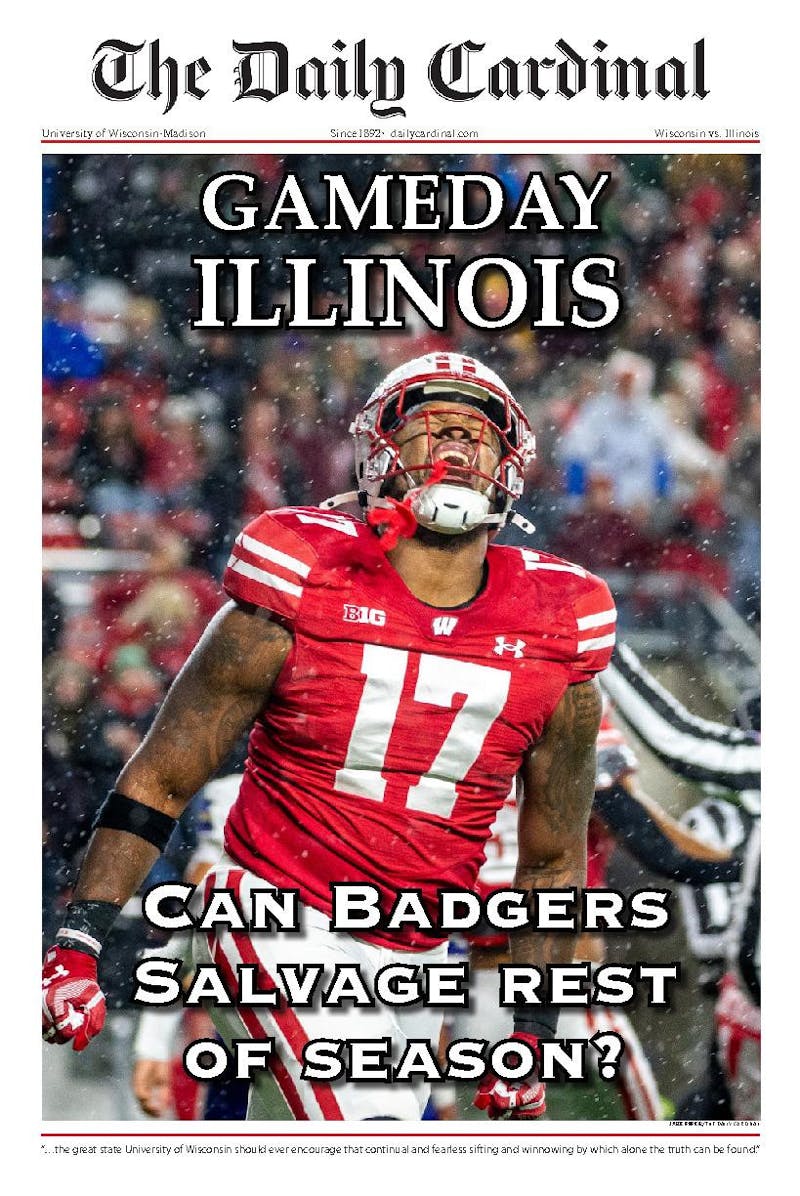University of Wisconsin-Madison students and organizations have spoken out about perceived hypocrisy in Madison policing following the Mifflin Street Block Party Saturday.
If you go to UW-Madison — or live in the midwest — you’ve likely heard about the Mifflin Street Block Party. Even so, what began as a political anti-war street protest in 1969 quickly morphed into an excuse to get publicly intoxicated with friends.
Thousands of people attend Mifflin without knowing its history. The first Mifflin Block Party occurred on May 3, 1969, as an anti-Vietnam war riot. It quickly turned into a three-day upheaval during which police officers tried to clear attendees from the streets with tear gas and clubs but were met with resistance from rioters, according to Madison.com.
Emergency Order #15, which was put into effect on April 7 by Public Health Madison and Dane County, eased outdoor gathering restrictions. The order asserted that numbers at outdoor gatherings “must be limited to ensure individuals who are not members of the same household or living unit maintain six feet physical distancing at all times.” In some minds, this order essentially gave organizers the go-ahead to carry out the event.
Black, Indigenous and people of color students at UW-Madison expressed their frustration, observing stark differences between policing attitudes over the Mifflin Block Party and ongoing social justice protests.
“Many officers could be seen playing beer pong in the same uniforms worn when brutalizing protestors all summer with gas and OC spray,” tweeted the BIPOC Coalition, an organization of students aiming to create an inclusive campus environment.
Juliana Bennett, the District 8 alder and co-founder of the UW-Madison BIPOC Coalition spoke out about her disappointment with the Madison Police Department.
“It’s extremely frustrating in my role as District 8 alder when I saw the large gatherings and police playing beer pong with partygoers at Mifflin,” Bennett said. “It’s extremely concerning that those who are supposed to be enforcing city and county ordinances regarding COVID-19 were actively engaging with and seemingly encouraging irrational and unsafe behavior. That relaxed state was not extended to Black and brown students at prior Mifflin block parties and certainly not extended at any protests that we’ve had thus far.”
Although there was a clear police presence at the event, students and spectators alike were surprised to see officers engaging in drinking games with students and exhibiting what seemed like a lax attitude towards partygoers amid the COVID-19 pandemic.
“It’s not necessarily being frustrated that the police were relaxed but more frustration that this exact relaxation is not extended to the BIPOC community,” Bennett said.
Barstool Wisconsin, a direct affiliate of Barstool Sports, posted a series of Instagram posts from the block party, which sparked some outrage among the student population. Many students expressed their concerns and exasperations in the following days on social media.
“My friends were attacked and trapped by the police for protesting in support of BLM, exercising a constitutional right to congregate,” commented Instagram user jcbcsby. “If you don’t see the hypocrisy here, you are the problem.”
The BIPOC Coalition took to Twitter, noting policing inconsistencies relative to public health, safety and damage.
“Remember how these same officers spent all last summer brutalizing protestors? Glad to see they’re so #relatable & #approachable to white students (that were most likely underaged) as they vandalized property and put the entire Madison community at risk of COVID!” tweeted the BIPOC Coalition.
Bennett spoke on the need for accountability from the Dane County Department of Public Health, as well.
“The blame is not only on the police with regards to what occurred at Mifflin but also on Dane County Department of Public Health because they’re the ones that eased outdoor restrictions, which made it okay for Mifflin to happen,” Bennett said.






